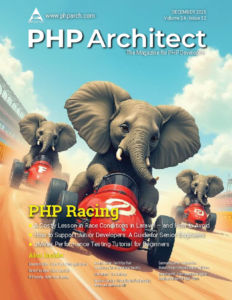Posts marked with “MongoDB”
Customizing Drupal Feeds For Smooth Migrations
With custom Feeds Tamper plugins, you can easily build a set of reusable data manipulation tools to fit the quirks of your data and greatly simplify some Drupal migration and data import projects. by Doug Groene
MongoDB and PHP—A Perfect Match
Modern applications require modern tooling. MongoDB has increasingly become a popular choice for building large-scale PHP applications. It is a convenient and intuitive way to use data. This article will show you how to use MongoDB and PHP together. by Joel Lord
Database Freedom
This month John and Eric discuss some of the greater articles coming in the July 2022 release, “Database Freedom”. We start off with two great feature articles, “Customizing Drupal Feeds For Smooth Migrations” by Doug Groene and “MongoDB and PHP—-A Perfect Match” by Joel Lord. Our monthly columnists have been hard at work as well. […]
Meet Kristina Chodorow
Kristina Chodorow is the lead developer on the MongoDB project and a member of the php|architect blogger squad. Among other great posts, she wrote this year’s Ada Lovelace Day post for php|architect, “Technically Female“. Kristina will be presenting on MongDB at TEK·X on both the tutorial day and the regular conference. If you are looking […]
New version of MongoDB
Version 1.4.0 has been released to production, bringing with it new security features and many other enhancements to MongoDB.
TEK·X Webcast "Mongo Scale!"
This week’s TEK·X webcast – part of the webcast series sponsored by php|architect and Microsoft – will be on the topic of MongoDB. MongoDB is part of a new wave of persistent storage engines that make up the NoSQL movement. The most popular websites in the world are switching to or already use non-relational databases. […]
The state of MongoDB, March 2010
Eliot Horowitz and the rest of the core MongoDB Team released a post on the project blog addressing current and future development of the project. The team has released two stable releases — 1.0 and 1.2 — and has a third, version 1.4, coming that contains “better concurrency, geospatial indexing, ‘usability’ enhancements and speed enhancements, to name a few.”








